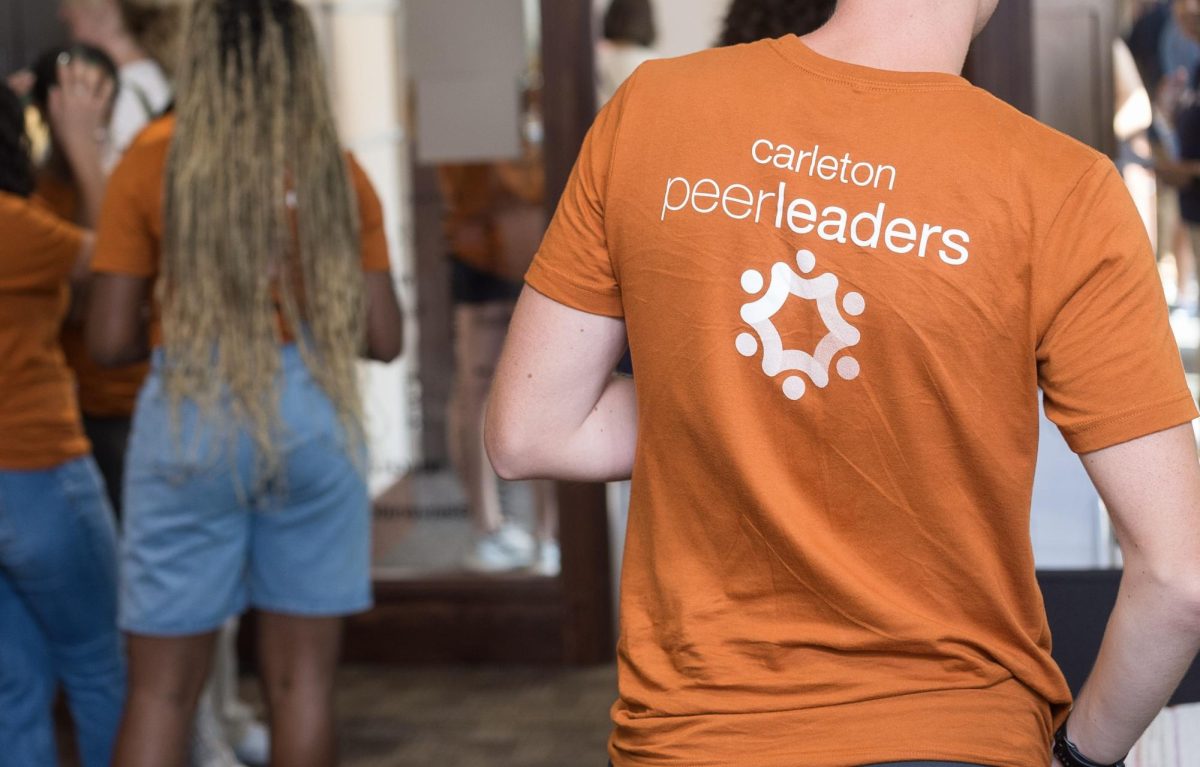From news broadcasts to social media to conversations amongst students, Russia’s recent invasion of Ukraine has certainly been on everyone’s mind. But what exactly happened? What are the implications? Carleton professors broke it down.
Political science professors Christina Farhart, Dev Gupta, Greg Marfleet and chair of the department Tun Myint, alongside history professor Adeeb Khalid, European studies professor Paul Petzschmann and Russian department chair Diane Nemec Ignashev led a panel on Wednesday, March 2. Broken into seven sections, each professor spoke to a different aspect of the conflict, followed by discussion and questions from the audience.
According to Farhart, these types of panels are not held very often but are when large scale events occur either domestically or internationally, such as when the January 6 insurrection occurred at the capital.
Khalid opened the panel with some background information on Russia and Ukraine, explaining how Russia has never acknowledged the creation of Ukraine. The expansion of the North Atlantic Treaty Organization (NATO) into Ukraine has provided reason for conflict in the eyes of Russia, as it signals a shift away from Russia.
According to Gupta, this is also, in part, due to Russia’s conception of the Soviet Union, and thus Ukraine, as part of a time of Russian supremacy. She remarked that Russia has always held its victory in World War II as justification for its future actions and as a nostalgic look back to the “great” Soviet Union. Thus, the perceived or fabricated fascist narrative in Ukraine has given Russia a chance to invade Ukraine and emerge a hero once again.
Considering NATO’s response is essential in this situation, as Marfleet pointed out. Russia’s military basis is grounded in railroads, which has prevented a full invasion from occurring, since their military efforts weaken as the railroads disappear. Marfleet posits that this may complicate Russian success in invasions of Ukraine.
Yet, NATO is not much more prepared for this. As Ukraine is not currently a member of the organization, NATO has no obligation to assist in this conflict; however, their current strategy has been to shift United States troops to Germany and other countries closer to the Eastern front, according to Marfleet. It seems, at the moment, that one of the largest goals is to avoid a spread into other countries, such as Sweden and Finland, which Petzschmann touched on.
According to Petzschmann, the European Union (EU) position is difficult to consider, as the EU’s expansionist policies did not hugely consider what would happen if the Balkan states attacked or were attacked by Russia. Further, the EU is highly dependent on Russia for energy, which has hampered its ability to act against the invasion.
But Europe is not the only region impacted by the Russo-Ukrainian crisis. In fact, the rest of the world, specifically China and Southeast Asia, has held a crucial role, as Myint brought up. Myint said that Russia’s invasion poses a challenge to China, which has been spreading anti-democratic sentiments throughout Southeast Asia for quite some time now. With the generally negative reaction to Russia’s invasion from the international world, China must think carefully about what its future actions will be.
Looking further west, the United States has economic stakes in this conflict. According to Myint, Ukraine is the fifth largest wheat exporter and controls 14 percent of the world’s wheat supply. With Ukraine preoccupied, the United States stands to profit by hiking prices for their own wheat exports.
However, as Marfleet pointed out in the discussion portion of the event, the United States has continued to posit sanctions against Russia in an attempt to push them away from conflict in Ukraine. As such, it remains to be seen where United States economic interests will ultimately lie.
Gupta and Ignashev shifted the conversation to more domestic matters in Russia in their segments. Ignashev spoke to her own experiences and her fears considering she has family currently in Russia. According to her, there is very high censorship in Russia which has limited access to information.
As such, much of Ignashev’s information has come from her communication with friends and family as well as the few journalists that have managed to escape censorship. Ignashev noted the importance of this as Putin’s likely last move, as he seems to be ill and likely will not be able to make many moves beyond this one.
Speaking further to the media and the situation in Russia itself, Gupta referenced the ways that current media is biased and how it is being weaponized to mislead people. There has, moreover, been military targeting of both media and military targets, which has increased the stakes of spreading information.
Lastly, the discussion portion brought up the question of what it would take to enact broad change within Russia. To this, Gupta remarked that regime change requires three and a half percent of the entire population to protest. While this statistic may seem small, it’s worth noting that the women’s marches in the United States, the largest protest in US history, barely broke one percent of the population. Thus, change in Russia requires large turnout and may be difficult to achieve.
Final questions that were left unanswered included whether or not Europe will be able to liberate itself from its energy dependency on Russia, what change might look like in Russia itself and of course, what we can expect moving forward.
These questions, and more, remain to be answered when future actions take place.












